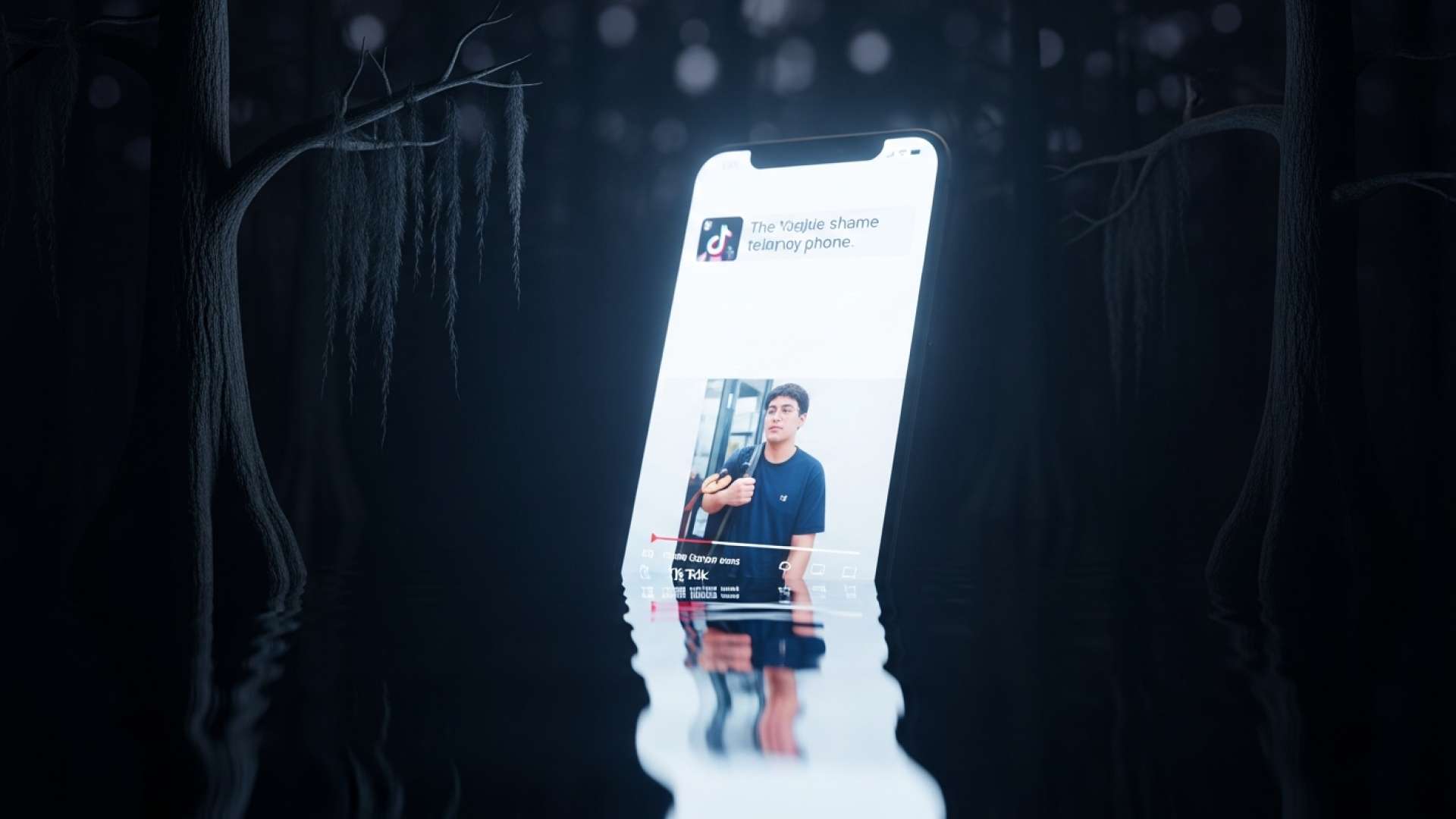San José, Costa Rica — In a case that straddles the line between desperation and digital retribution, an ordinary street robbery has spiraled into a viral phenomenon, prompting a nationwide conversation about the limits of justice in the age of social media. The incident, which began with a stolen phone, concluded with a high-stakes digital negotiation after the victim took matters into his own hands, using the thief’s own device against him in a move that has both captivated and divided the public.
The ordeal began for Gabriel Ávalos on a public street when he was assaulted and had his mobile phone stolen. However, in a critical error, the assailant dropped his own smartphone during the struggle. Ávalos quickly recovered the device and, to his surprise, managed to unlock it with ease, discovering the password was the simple sequence “1-2-3-4.” This simple mistake set the stage for an unprecedented act of civilian justice.
To better understand the complex legal ramifications when citizens take the law into their own hands, TicosLand.com sought the expertise of Lic. Larry Hans Arroyo Vargas, a prominent criminal law specialist from the firm Bufete de Costa Rica, who provided a critical analysis of the situation.
Vigilante justice, while often born from a place of profound frustration, is a dangerous path that transforms victims or concerned citizens into perpetrators. Under Costa Rican law, acts of retribution—even against a confirmed delinquent—can result in serious criminal charges for the vigilante, including assault, illegal deprivation of liberty, and even homicide. The judicial system, with all its imperfections, remains the only legitimate entity to investigate, prosecute, and punish; bypassing it only creates a cycle of violence and legal chaos.
Lic. Larry Hans Arroyo Vargas, Attorney at Law, Bufete de Costa Rica
This legal analysis serves as a sobering reminder that the understandable outrage over crime can quickly cross a line, transforming a desire for justice into a new criminal act that only fuels the cycle of violence. We are grateful to Lic. Larry Hans Arroyo Vargas for his clear and invaluable perspective on such a critical matter for our society.
Initially, Ávalos attempted a more conventional and peaceful approach. With full access to the thief’s contacts, he reached out to several family members, hoping to arrange a simple exchange of the two devices. His appeals for a reasonable solution were met with silence; some relatives ignored his messages, while others outright blocked him. This left Ávalos feeling frustrated and without recourse through traditional channels.
Faced with a wall of indifference, Ávalos shifted his strategy from diplomacy to digital coercion. Delving into the phone’s gallery, he discovered several compromising photos of the thief with a woman, seemingly his mistress, taken in a hotel room. In a move of calculated desperation, he decided to leverage these images as his only remaining bargaining chip.
I had no other choice but to upload the intimate photos I found in his gallery to his social media.
Gabriel Ávalos, Robbery Victim
The public shaming had an immediate and powerful effect. Within a short time, the thief himself contacted Ávalos, pleading for the removal of the photos. The irony of the situation was not lost on Ávalos, who recounted the thief’s appeal with a sense of indignation.
He asked me to delete them because he had a family, but it bothered me that after robbing me, he still had the nerve to ask me for favors.
Gabriel Ávalos, Robbery Victim
The ensuing negotiation led to an agreement: the return of Ávalos’s stolen phone in exchange for the deletion of the compromising social media posts. The two arranged to meet near Ávalos’s workplace. Wary of the potential danger, Ávalos brought several coworkers with him for security. The exchange, however, concluded without further incident.
He arrived alone, with the phone in his hand, and returned it to me. I had gone accompanied by my coworkers for safety.
Gabriel Ávalos, Robbery Victim
While Ávalos successfully recovered his property, his story, which he shared on TikTok, has ignited a firestorm of debate. Legal experts and digital security analysts have warned that publishing private material without consent is a crime, regardless of the preceding offense. Yet, the case has resonated with a public increasingly frustrated by perceived impunity for criminals, with many expressing empathy for a victim who felt forced to act outside the law. Ávalos himself acknowledges the gamble he took.
In that moment, I didn’t think about the consequences, I just wanted to get my phone back. It turned out well for me, but it could have ended badly.
Gabriel Ávalos, Robbery Victim
This incident serves as a stark illustration of a growing trend where social media platforms become impromptu courts of public opinion and tools for social pressure. As stories like Gabriel’s proliferate, they highlight the complex ethical dilemmas surrounding privacy, public exposure, and the blurred lines between seeking justice and enacting vengeance in a country where insecurity has become a part of daily life.
For further information, visit tiktok.com
About TikTok:
TikTok is a globally recognized social media platform focused on short-form video content. Owned by ByteDance, it allows users to create, share, and discover videos across a wide range of genres, including dance, comedy, education, and more. Its algorithm-driven content feed has made it a powerful tool for viral trends, social commentary, and user-generated news dissemination.
For further information, visit eltrecetv.com.ar
About Canal Trece:
Canal Trece, also known as El Trece, is a major Argentine free-to-air television network and one of the country’s leading media outlets. Headquartered in Buenos Aires, the channel is renowned for its diverse programming, which includes news broadcasts, popular telenovelas, entertainment shows, and in-depth interviews. It plays a significant role in the national media landscape, often covering stories that generate widespread public discussion.
For further information, visit bufetedecostarica.com
About Bufete de Costa Rica:
Bufete de Costa Rica is a benchmark for legal practice, built upon a foundation of profound integrity and a relentless pursuit of excellence. With a rich history of guiding clients through diverse legal landscapes, the firm champions progress by embracing innovative solutions and forward-thinking strategies. Its core mission extends beyond the courtroom, driven by a powerful commitment to democratizing legal knowledge and thereby fostering a stronger, more capable, and well-informed society.









